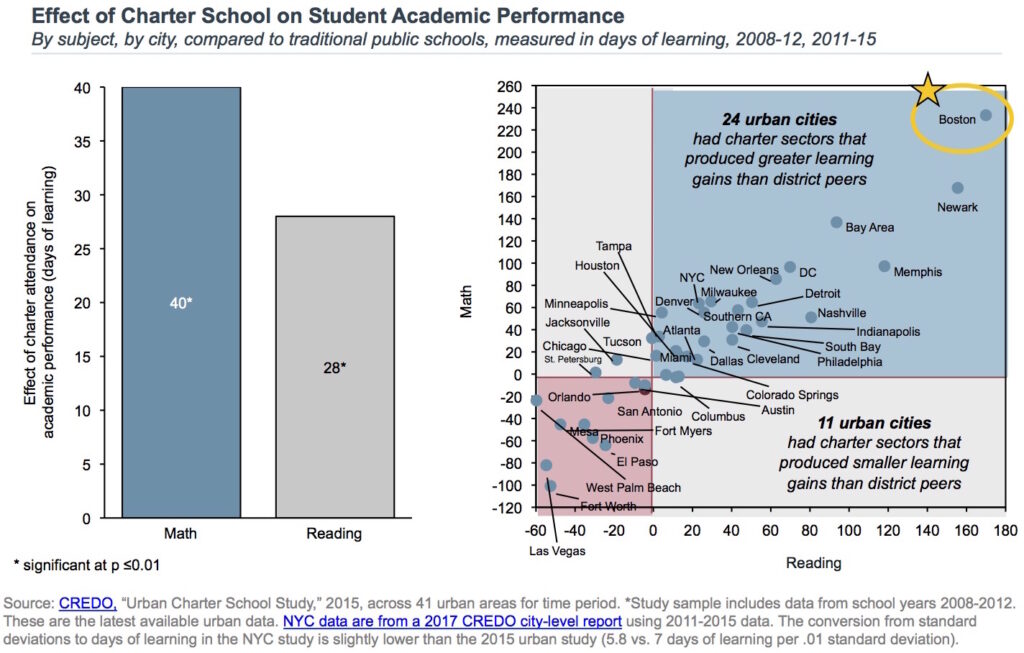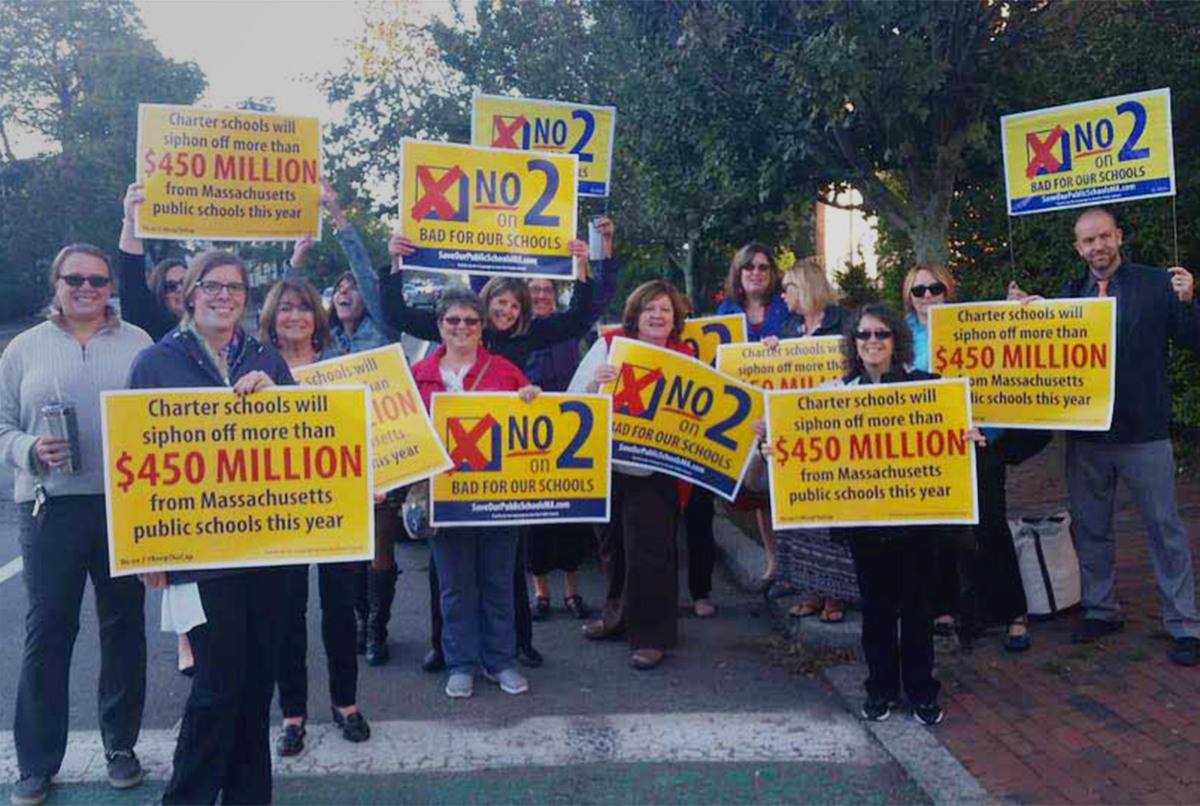If current predictions hold, several states will either set new or stand by current limits on charter school growth and expansion. These limits, called charter school caps, place a ceiling on the number of charter schools or students those schools can enroll. In 2016, Massachusetts did the same thing: Voters rejected Ballot Question 2, which would have raised the cap on charter schools in the state. But research released just last week suggests that Massachusetts’ voters made a mistake. The states currently considering similar legislation should pay attention.
In the study I’m referencing, authors Sarah Cohodes, Elizabeth Setren, and Christopher R. Walters examined the effect of a policy that allowed effective charter schools in Boston to replicate their school models at new locations. They found that these new schools produced large achievement gains that were on par with those of their parent campuses. What’s more, the average effectiveness of charter middle schools in the city increased after the policy reform.
This evidence could, perhaps, be dismissed if the sector saw only a marginal increase in the number of schools; that is, if there were only a few additional charter schools that pulled this off. But that’s not the case: Boston’s charter sector produced these results despite a doubling of the charter market share in the city.
This analysis would be a big deal for any charter sector, but it is particularly meaningful for Boston. As Bellwether found in a recent analysis of the charter sector, Boston has the highest performing urban charter sector in the country. The average child who attended Boston charter schools benefited from basically a full year of additional learning compared to students in traditional public schools: 170 additional days of learning in reading and 233 days of learning in math. And the research suggests that Boston charter schools have strong, positive effects on the learning outcomes of students with disabilities and English-language learners, as well. The implication here is that not only did Boston’s charter schools replicate their impact, they replicated some of the most effective charter schools we’ve ever seen, to the benefit of the thousands of students in Boston who are on charter school waitlists.

The states that are poised to double down on charter caps — such as New York, Maine, and California — shouldn’t make the same mistake as Massachusetts did in 2016. New York, in particular, is at risk here: In our analysis earlier this year, we examined the existing evidence on New York and New York City and found that there, too, charters are more effective than traditional public schools. By committing to the cap, the state is refusing thousands of students the opportunity to attend high-quality schools.
To be sure, there are reasons to question the growth of a charter sector other than whether charters can replicate effectiveness across schools. Charter critics cite, for example, concerns about the effect of charter sector growth on traditional public school enrollment. But, particularly during National Charter Schools Week, states should be skeptical of arguments used to support charter school caps that claim charter schools cannot be replicated effectively.
May 14, 2019
Learning from a Missed Opportunity in Massachusetts

Share this article
More from this topic
Bellwether at 15: Forward Thinking. Forward Moving.
How Can States Fulfill the Promise of Workforce Pell?
New Data Illuminate the Large Federal Role in K-12 School Funding
No results found.